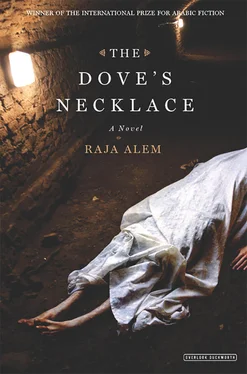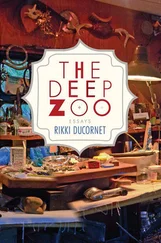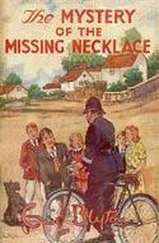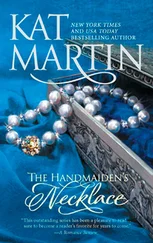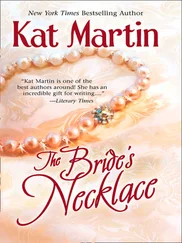Mu’az was now certain that the Eunuchs’ Goat had lost his mind. “As soon as a girl is born, they lock her up in a mannequin’s body. All girls are possessed by a mannequin that wants to control them, but then you and me and him are trapped by it. Look at us! Yusuf should never have stopped writing to her, that way she wouldn’t have disappeared into death. And I should never stop hoarding and burning mannequins or else the neighborhood girls will all drown! The head of the Lane of Many Heads and everything inside it needs to be recycled, and we need to go on smuggling. Smuggling in love and words and candid photos, magnifying lenses, women’s hands and faces. To show that we are made of flesh, and blood, and desire.”
Mu’az was staring at the mannequin in the Eunuchs’ Goat’s shopping cart. It turned his stomach. “Can you honestly tell me, Mu’az,” the Eunuchs’ Goat went on, “which one of us is real: me or the mannequin? We have to figure out whether this is all just the paranoid fantasies of a lunatic. Am I a real human being or just one of these?” He asked, pointing at the mannequin in the cart. “What if somebody is hoarding me in this city? Who can promise me that I’m not just a puppet? That I won’t just be unplugged one day and that another newer model won’t take my place? That I won’t be tossed onto a trash heap while the souls of real humans are transported to some other existence that will forever remain a mystery to us … To some paradise somewhere.”
Mu’az gave up any hope he’d had of following the thread of the conversation so he just tried to tie together the strains that interested him. “Do you think Azza was taken away? Or was she the one who died?”
“While Yusuf was still writing to her? We’re the philosophy of garbage, that’s what we are.” His entire body was transformed into an exclamation mark for a moment, but he regained his previous apathy almost instantly. Without so much as a backward glance he set off, pushing his cart toward the shopping center exit. As soon as he’d disappeared into the darkness, Mu’az noticed a black driver, dressed in white robes and a red-checked headscarf, jump out of a black Mercedes to open the rear door for the artist, who slipped gracefully inside. Her ankle flashed in his memory. The driver shut the door and took his place behind the steering wheel, and they set off.
“That’s the same driver. The one who was driving the woman from social insurance. The Cadillac at dawn. Azza’s driver.” He leapt to his feet. “When you get this close to her, you’re bound to lose your mind. Just like all the other men who’ve gotten to know her. Life’s too big to revolve around a woman.” He didn’t know who it was that kept repeating that phrase inside his head. The gallery was suddenly still and it was as though the lights had never been on. There was no chance of taking any more pictures. Mu’az looked around him. He wasn’t sure anything would come out in the dim light, but he took one final shot of the great emptiness all the same. The only thing that interrupted the perfect emptiness was a single car-washer, sitting on the motionless escalator counting his takings. He was chatting to a man selling wreaths of jasmine flowers, who was standing at the very edge of the frame, waiting for one last customer. He’d spent the entire evening walking up and down the seafront, selling his wreaths to day-trippers, the wreaths hanging from his wrist slowly withering in the hot, salty air. He caught up with the last of the mall’s shoppers, a family laden with bags, none of whom so much as noticed him except for the young daughter, whose black braids looked like a curled snake. She clung to her father’s arm and asked him to buy her a wreath as he was loading their purchases into the trunk. Almost all his customers that day had been girls like this one, younger than ten; they were life-savers, these girls with their slanting eyes — far from the Barbie model — who were captivated by his wreaths of jasmine flowers.
In that instant, Mu’az realized that as his imagination was taking in a stream of photos, it also was taking in a virus of diaries and mannequins, and was manipulating them. The gallery was the perfect place to meet Azza. He looked around at the crows that, startled by sporadic honking, took refuge in the trees and on the walls of surrounding villas. He paid no attention to them and instead tried to get a shot of the small birds. “Birds move in such a strange way when they’re flying. It’s as though they’re swimming and diving and then catching themselves and diving again.”
He was talking out loud, to the night. “Birds are nature’s desire to be free. It takes the form of little winged bundles, which we know as birds, but which are actually freedom itself. It departs from our bodies, like these little bundles, when we take a photo of a dream that has grown within us, one that we chase after no matter where it leads. When we grab hold of it, even in a picture, these handfuls stream down from our bodies. I saw all this in the dozens of photos I took of the boys and girls of the Lane of Many Heads chasing after their dreams. But did I see those kinds of birds flying out of the artist’s body at the opening?” He didn’t know who it was who’d planted these words in his head, nor from which stolen scrap they’d reached him; he was desperate for his body to speak in those tiny wings, to be freed of all limits, but a blackness settled over his heart.
“Crows are nature’s predatory desires, and that’s how they get their form: smudges of pure blackness.” He felt like he was trapped between the two: bird or crow? That was the choice the Turkish woman had laid before him, and she was waiting to hear his answer. For the first time, he was honest with himself about what she wanted from him: to put his faith in her hands. He was the one who claimed that there was an invisible line, which if crossed would tear one’s body apart. Therefore there must also be a line that assembles the disassembled to create a body. Every photograph he took and edited, every verse of the Quran he’d memorized was part of his search for that line. He tried with his every bundle of freedom, every bird, the desire for freedom in his eye, to break through to the point where everything was gathered together: Azza, life, the city, in a single body that would speak to him. The Turkish woman may not have translated her wish into words, but she would inevitably drive him to collect those disparate strings for her.
Mu’az made up his mind as he was standing there. He approached the glass exterior of the gallery and pressed his face up against the glass. He focused with his every layer of seeing — perception, interpretation, dissection, composition — on the very final painting, the last in the exhibition. He focused on the absent figure in it, on the pool of light, which was the absent figure’s remains, a fog of breath, gradually allowing the handfuls of absence to cloud his eyes. His eyes wide and tearful, his sight was extinguished; the last thing he saw was the dripping lines of longing left behind by the figure who had disappeared in front of him, flowing into the city, and submerging the image of her in his mind, flooding his systems, which came together in the completion of the picture. The pupils of his wide eyes turned completely white. Surely that was the color of Adam’s eyes, from whom he’d inherited the pain of leaving Eden, and the color of Jacob’s eyes, from whom he’d inherited the pain of losing Yusuf.
When he turned to look back at the city and all he could see was a spot of light dancing over the blood fountains in his eyelids, he knew he’d gone blind. Within the blackness that had taken root inside Mu’az, shadows, memories, and reality were all rolled into one. He recognized two faces in there somehow: the face of the Turkish woman’s eunuch, who was sexy even to men when dressed up as a woman, and Azza’s face as she’d appeared to Yusuf, the summation of everything gathered together in the Lane of Many Heads, a mirror, a face that stood for Mecca itself. Mu’az shut his blind eyes against the mirror, squeezed them; he could hear the glass shatter. All he could think about was telling someone what he’d seen. He took out his cell phone and dialed the number he’d been warned never to call unless it was an emergency.
Читать дальше
